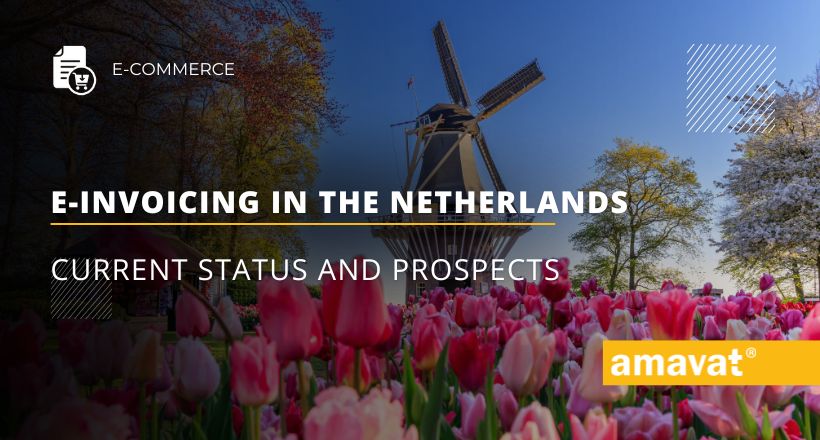E-invoicing in the Netherlands: Current status and prospects
E-invoicing in the Netherlands is gaining increasing importance in the context of the digitization of administrative processes and the facilitation of document exchange between businesses and public administration entities. The implementation of new regulations concerning electronic invoicing, particularly in business-to-government (B2G) relations, is a result of aligning national regulations with the EU Directive 2014/55/EU. It is worth examining the current legal status and future directions for the development of e-invoicing in the Netherlands.
Introduction of the NLCIUS standard
As a member state of the European Union, the Netherlands has adapted its e-invoicing regulations to the European Core Invoice Usage Specification (CIUS) standard. The introduction of the Dutch substandard, known as NLCIUS, was in response to the need to adapt European guidelines to the specifics of national law. NLCIUS, a variation of the CIUS standard, takes into account the specific requirements of the Dutch market and is supported by the standardization platform STPE. As a result, electronic invoices in the Netherlands comply with EU guidelines while being adapted to national regulations.
E-invoicing obligation in the Netherlands
The obligation to issue e-invoices primarily concerns the public sector. Since 2017, there has been a partial mandate for the use of e-invoices in B2G relations in the Netherlands, meaning that central government entities are required to accept and process electronic invoices. Local government units and other public entities must also be able to receive e-invoices, though not all are obligated to use them. Notably, the obligation to e-invoice does not yet apply to business-to-business (B2B) transactions, although it is expected that these regulations may be extended to this sector in the future.
E-invoice format
The standard format for e-invoices in the Netherlands is Peppol BIS 3.0, which is widely accepted by both public administration and private entities. By adopting this format, the Netherlands ensures interoperability and compliance with European guidelines, facilitating document exchange internationally as well.
Methods of sending e-invoices in the Netherlands
Like many other European countries, the Netherlands has adopted the PEPPOL framework as the standard for document exchange. All public administration bodies are now connected to the PEPPOL network, enabling fast and secure transmission of electronic invoices. For central government entities, the use of PEPPOL is mandatory, while for local governments, it is recommended but not obligatory.
Suppliers to public entities in the Netherlands have three main methods for sending e-invoices:
- Via PEPPOL: Connecting to a PEPPOL access point provider allows for the exchange of invoices through this network.
- Via email: Companies with accounting software capable of generating e-invoices in XML format can send them as email attachments.
- Through a web portal: For businesses without appropriate EDI (Electronic Data Interchange) tools, web portals are available that allow manual entry of invoice data.
In the case of central administration providers, there is also the possibility of direct connection to the DIGIPOORT platform, which is recommended for companies with extensive IT resources and a large number of invoices sent.
E-invoice archiving requirements
Dutch regulations require businesses to archive e-invoices for at least seven years from the date of issue. Archiving may take place abroad, but it must meet certain conditions, such as ensuring the integrity and availability of documents upon request by tax authorities. Ensuring the integrity and authenticity of e-invoices is a key aspect, and one way to meet these requirements is through the use of a qualified electronic signature.
The growth of e-invoicing in the Netherlands
In recent years, the Netherlands has seen a significant increase in the popularity of e-invoicing. The introduction of mandatory regulations for B2G transactions and growing awareness of the benefits of digitizing administrative processes have led more businesses to adopt e-invoicing. Compared to other European countries, the Netherlands was one of the leaders in implementing e-invoicing. As early as 2011, around 40% of Dutch companies were using electronic invoices, reflecting their high level of market acceptance.
One of the key factors driving the popularity of e-invoicing in the Netherlands is the cost savings it brings to businesses and public administration. It is estimated that by automating invoicing processes, the Dutch administration saves approximately 10 million euros annually.
Summary – The future of e-invoicing in the Netherlands
The Netherlands, thanks to the widespread adoption of e-invoicing, has already completed most of the implementation activities. While there are currently no specific plans for mandatory exchange of other electronic documents, in the future, the Netherlands may follow the lead of countries like Italy or Belgium, which are considering introducing regulations for e-procurement. It is also possible that in the coming years, the obligation to use e-invoices in B2B relations will be introduced.
One thing is certain – the growing popularity of e-invoicing and the development of EDI technology will increasingly impact the operations of companies in the Netherlands. As more businesses gain the ability to exchange electronic documents, e-invoicing is becoming an integral part of the supply chain, regardless of whether a company works with public administration entities or not.





